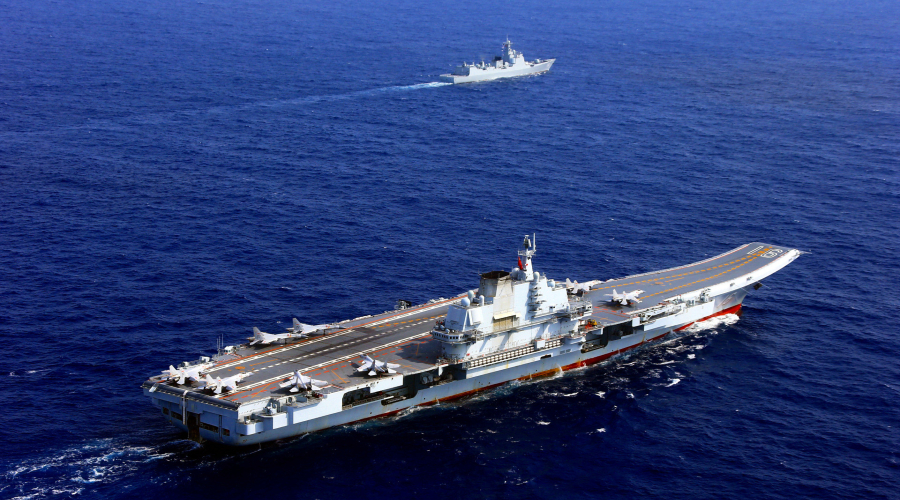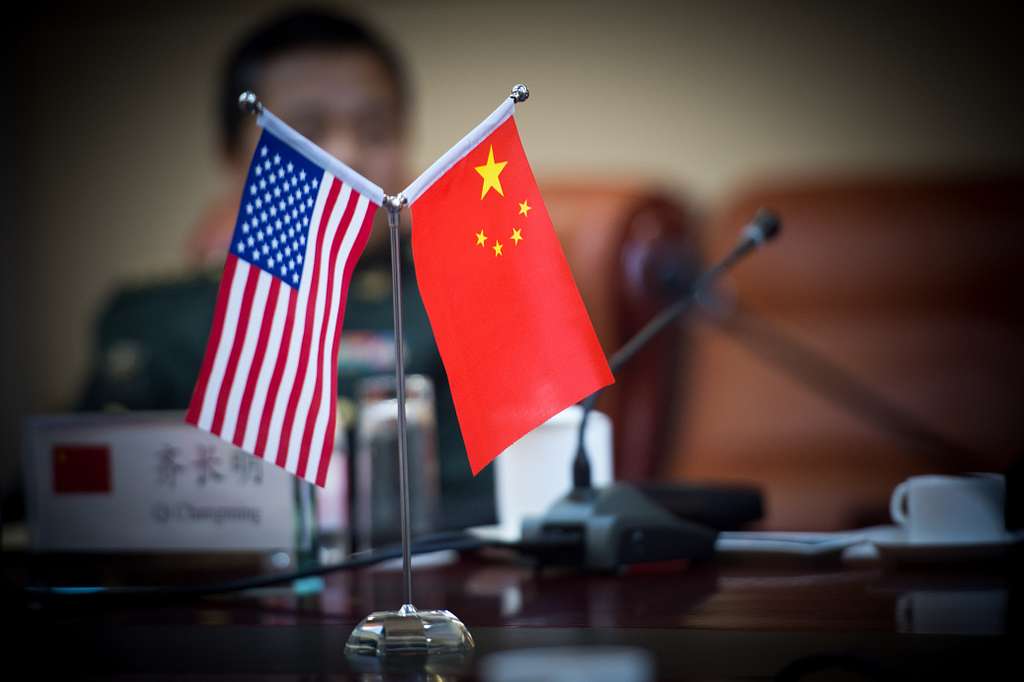The Dangers of Peak China

Editor’s Note: For many years, China’s seemingly inexorable rise has preoccupied U.S. strategists. The country’s economic stumbles, however, raise new concerns. Michael Beckley, a professor at Tufts, argues that China is a “peaking power” and that, historically, such powers are often economically and militarily aggressive.
Daniel Byman
***
As China’s economy slumps, the question is now how Beijing will react to the end of its rise. History suggests that the answer is “not well.”
In a new study in International Security, I analyze every case over the past 150 years in which a fast-growing great power experienced a protracted economic slowdown. None of these “peaking powers” mellowed out. Instead, most cracked down on dissent at home while expanding abroad to secure their economic lifelines, beat back rivals, and grab territory.
Scholars have written extensively about rising and declining nations. But peaking powers, meaning those whose economic ascents have slowed but not yet stopped, are actually the most dangerous kind of country because they have both the means and the motive to shake up the international order.
Whereas declining powers are often forced to retrench to stay solvent and rising powers with booming economies can afford to wait for better days ahead, peaking powers are typically eager and able to take drastic actions to improve their fortunes. An era of rapid growth has inflated their ambitions, raised their citizens’ expectations, and alarmed their rivals. Then a protracted slowdown threatens those aspirations and provides enemies a chance to pounce. Beset by slowing growth but still armed with formidable capabilities, leaders of peaking powers calculate that they have a favorable but finite window of strategic opportunity to rekindle their nation’s rise.
Toward that end, mercantilist expansion—the use of state power to carve out spheres of influence—presents an especially tantalizing opportunity. Extending the country’s reach abroad offers leaders a chance to garner new sources of wealth, rally the nation around the ruling regime, and ward off rival powers, all without overhauling the nation’s domestic system. Rather than implementing potentially disruptive reforms at home, such as redistributing income from government elites to citizens, rulers of peaking powers typically tighten their grip on power while trying to forge empires abroad. They reduce foreign access to their domestic markets while investing heavily overseas to generate demand for their exports and secure critical resources. To protect their far-flung assets, they develop military power-projection forces and deploy them along key trade routes. In most cases, such expansion fuels great power competition. In some cases, it has triggered major wars.
Historical examples of this pattern are plentiful. When a series of economic depressions threatened the United States’ rise in the 1880s, Washington reacted by forging a “protectionist empire.” It adopted the highest tariffs in the world, channeled investment and exports into Latin America and East Asia, seizing territory there, and built an enormous navy to secure its new domain. Imperial Russia responded to the end of its rise at the turn of the century by abandoning its previous policy of “peaceful penetration,” which had used trade and investment to extend Russian influence in the Far East, in favor of militarily occupying parts of Korea and Manchuria to secure markets, raw materials, and warm-water ports. Japan and Germany suffered economic crises during the interwar years; both countries went on genocidal rampages to seize resources and “living space” from neighboring nations. Russia was a rising power in the 2000s, banging out 8 percent economic growth rates annually, largely as a result of high commodity and industrial prices. But when those prices declined after the 2008 global financial crisis, they dragged down Russia’s growth and Vladimir Putin’s popularity along with it. In response, Putin began pressuring former Soviet states to join a Russia-led customs union, essentially asking them to become economic vassals of Moscow. That campaign of coercion eventually spurred Ukraine’s Maidan Revolution and Russia’s annexation of Crimea.
These and other examples show that the question is not whether a peaking power will engage in expansion, but how. The answer depends in part on the structure of the global economy. How open are foreign markets? How safe are international trade routes? How competitive are the peaking power’s products? If the international economy is open and the peaking power has desirable wares to sell, it can potentially stabilize its situation through trade, investment, and diplomacy, as Japan tried to do as its postwar miracle wound down in the 1970s. But if the peaking power faces fierce international protectionism, feeble foreign demand for its goods, or insecure supply lines, then it may need to use more forceful methods to push its way into foreign markets and obtain critical resources, as Japan did in the 1930s.
Another factor is the peaking power’s regime type. Autocratic peaking powers are especially prone to aggressive expansion because their regimes fuse political and industrial interests: The state invests heavily in major companies, and major companies have significant sway in the government. These kleptocratic links, usually concentrated in heavy industries prone to state control and corruption, incentivize autocrats to shield national firms from foreign competition and help them find new resources and markets abroad when profits dry up at home. Without regular elections to hold them accountable, autocrats can concentrate the benefits of mercantilist expansion among a small band of elites while offloading many of the costs onto the powerless masses—for example, they can raise taxes to pay for subsidies and military spending, raise prices on domestic consumers by implementing tariffs, and draft citizens into the military. Democratic governments obviously are not immune to crony capitalism, but they usually represent a more diversified portfolio of interests, some of which may favor free markets and international cooperation over mercantilism and aggression. For example, in the United States in the late-19th century, Republicans advocated mercantilist expansion, whereas Democrats opposed it and reduced tariffs and naval construction whenever they held power.
As a state capitalist dictatorship facing rising international protectionism, China today is a high-risk case for an aggressive response. In fact, it already seems to be following the historical pattern. During the 2010s, China’s economic growth rates declined by more than half, productivity turned negative, and debt surged by an astounding $29 trillion (a sum greater than one-third of the entire global economy). In response, China abandoned the “peaceful rise” policy that predominated during its high-growth years in favor of a more aggressive campaign of mercantilist expansion. It adopted sweeping industrial policies to achieve economic self-reliance while tripling outbound foreign direct investment and quintupling overseas lending to secure critical resources and stimulate demand for Chinese exports. To protect those investments, China expanded its military power-projection capabilities, churning out warships faster than any country since World War II and developing ports capable of hosting them along key trade routes. It also militarized features in the South China Sea and significantly increased its use of ship-ramming and aerial intercepts to shove neighbors out of disputed sea lanes. As I detail in my International Security article, Chinese government documents, elite statements, and assessments of China’s overseas contracts and military investments suggest that these and other expansionist actions were driven at least partly by China’s economic troubles—and they could be just a preview of what is to come if China stagnates in the years ahead.
Much of the debate on U.S. policy toward China has concentrated on the perils of an ascendant and confident China. Yet the United States actually faces a more explosive threat: an ambitious and embattled China suffering a prolonged economic slowdown. Whereas a fast-growing China could afford to expand slowly and back down in crises—safe in the knowledge that its wealth, power, and prestige were rising and that the Chinese Communist Party’s (CCP’s) legitimacy was secure—an economically sluggish China could be more desperate for economic outlets and primed to react violently to slights and setbacks.
Indeed, it is hard to see how the CCP could do otherwise. The regime has already dialed up nationalist propaganda, accelerated efforts to make China whole again by taking back territories lost in previous eras, doled out hundreds of billions of dollars of Chinese taxpayers’ money to foreign governments that will struggle to repay those debts, and adopted a national security strategy that calls for preventive action against threats to CCP security. President Xi Jinping has attached his legitimacy to many of these initiatives, and powerful interest groups—including state-owned industrial firms and the armed forces—favor China’s current strategy because it funnels money into their coffers. Historically, great powers have struggled to escape foreign entanglements, especially when those entanglements benefited political elites. China appears to be no exception to this pattern.
The challenge for U.S. foreign policy is to contain China’s expansion without causing the CCP to lash out. If mishandled, U.S. policy could end up choking China economically and provoking it with tough talk over Taiwan and other issues while failing to deter Beijing militarily. History suggests that would be a recipe for disaster.
Two principles could help strike a better balance. First, the United States should focus on competing in the few areas that could upend the balance of power, the most important of which are Beijing’s efforts to conquer Taiwan and to monopolize what the CCP calls economic “chokepoints,” meaning goods and services that other countries cannot live without, such as telecommunications networks, computer chips, medical supplies, and rare earth minerals. The United States does not need to confront China everywhere, just blunt Chinese military and economic aggression while ignoring, or even encouraging, initiatives that channel Chinese resources in less threatening directions. For example, if Beijing fritters away money on loss-making projects as part of its Belt and Road Initiative or builds aircraft carriers that will not be combat-ready for decades, so much the better.
Second, competition with a peaking power is a sprint, not a marathon, so securing U.S. interests requires using tools and partners available now rather than waiting for cutting-edge assets that may not materialize for years. Militarily, that means immediately deploying missile launchers and armed drones near Taiwan, even if doing so drains funds for longer-term investments in more advanced weapons systems. Economically, the United States needs to marshal a patchwork of coalitions to develop alternatives to Chinese products and to enforce targeted export and investment controls in critical sectors, as the United States and several of its allies have done recently in the advanced semiconductor industry.
Perhaps by the 2030s, economic and strategic headwinds will compel Beijing to dial back its ambitions and a Sino-American diplomatic breakthrough will become possible. Now, however, is a moment of maximum danger because China is strong enough to destroy key aspects of the world order—including the territorial status quo in East Asia—but not to feel secure or satisfied with its place in that order. As China’s rise comes to an end, the United States must handle Chinese aggression with a sophisticated blend of deterrence, reassurance, and damage limitation. Compared with waging a whole-of-society throwdown against a rising superpower, managing China’s economic slowdown may seem like an unambitious mission. But it is the defining foreign policy challenge of this decade.




-2.jpg?sfvrsn=f979c73d_6)
